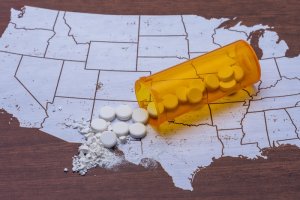Substance Abuse and Quarantine Fatigue: How to Deal
Most people are so over quarantine. Like it’s a bad plot in a TV series that’s run one too many seasons long. It’s been about a nine-month stretch, and we all find ourselves still living in what feels like a horrible final season of The Pandemic.
And what makes matters even more troublesome, the current winter surge that was predicted months ago is now upon all of us. More hospitalizations. More safety restrictions. More quarantine.
Still, substance abuse is a major issue in the United States, especially through the pandemic. As a matter-of-fact, some sources allege the new COVID normal quarantine lifestyle has exacerbated alcohol and drug use.
Perhaps this is so because lack of social connection increases health risks as much as having an alcohol use disorder and social isolation and loneliness are doubly as harmful to an individual’s mental and physical health even when compared to obesity, according to Julianne Holt-Lunstad, PhD, a psychology and neuroscience professor at Brigham Young University.
At American Addiction Centers (AAC), the nationwide leader in addiction treatment, we follow the guidelines from the Centers for Disease Control and Prevention (CDC) and continue to safely provide treatment under the care of licensed physicians during this pandemic. Safety for both our patients and staff are our priority, along with quality of care.
If you find yourself battling an addiction with drugs or alcohol, please reach out for the help that you need.
Substance Abuse
Americans have been battling the war on drugs for decades now. Alcohol use disorder or a substance use disorder are diseases that impact many. The added enemy known as the coronavirus doesn’t help matters and it most certainly doesn’t make the problem go away.
disorder are diseases that impact many. The added enemy known as the coronavirus doesn’t help matters and it most certainly doesn’t make the problem go away.
Drug use statistics:
- Roughly 22 million Americans struggled with an alcohol or drug problem in 2005.
- In a 2018 report, 53 million people (12 and older) either misused prescription drugs or used illegal drugs in the previous year.
- 70,980 Americans died of a drug overdose in 2019.
- Overdose deaths have risen 11.4% in the first four months of 2020.
- The Washington Post reported that there was a 42% increase in suspected overdoses in May of 2020 from May of 2019.
The statistics are alarming. Health officials and the White House expect the pandemic to have an increase in overdose death rates this year.
Quarantine Fatigue
 Maybe you’re battling quarantine fatigue. After all, people miss going out to restaurants, sporting events, concerts, church gatherings, gyms, and participating in so many other activities or paying a simple visit to some of their favorite venues. Some miss it so much, that they’ve decided to throw caution to the wind and to behave like COVID doesn’t exist. Of course, this behavior leads to consequences that are real.
Maybe you’re battling quarantine fatigue. After all, people miss going out to restaurants, sporting events, concerts, church gatherings, gyms, and participating in so many other activities or paying a simple visit to some of their favorite venues. Some miss it so much, that they’ve decided to throw caution to the wind and to behave like COVID doesn’t exist. Of course, this behavior leads to consequences that are real.
Caution fatigue, which morphed into the coinage known as “quarantine fatigue” in 2020, is an unintentional phenomenon that consists of demonstrating low energy or motivation for following safety guidelines, according to Jacqueline Gollan, a professor at Northwestern University Feinberg School of Medicine.
People may have been super diligent in handwashing, social distancing, and wearing a mask at the beginning of the pandemic. Before, the threat was new, and people were motivated by fear. As time went by, they became lax in their approach to COVID. The sense of urgency may have faded. This happens when individuals no longer believe warnings are relevant, become impatient with warnings, or minimize the risk.
An example of when this behavior was demonstrated pre-COVID was when a car alarm went off. Strangers heard the alarm, but because they’ve become numb to hearing it so often, the sound tended to be dismissed. This may happen due to lessoned sensitivity, ongoing stress, or not being able to simultaneously process information.
Solutions
Whether you’re struggling with a substance use disorder, quarantine fatigue, or both, know that many are in this battle with you. However, according to the CDC, there are healthy ways to handle dealing with the emotions that rise during this pandemic. Of course, in any medical emergency, please dial 9-1-1. And if you’ve been sober and have relapsed, please consult with a licensed physician in order to take the necessary steps to get back on the road to recovery safely. There are also virtual 12-step programs like the ones offered at AAC that can help you feel a sense of community while still being safe in quarantine.
Healthy tips to handle stress:
- Know ahead of time how and where to get treatment (therapy, counseling).
- Know ahead of time what to do if you contract COVID-19.
- Periodically step away from listening, watching, or reading news stories.
- Be mindful of your emotional health.
- Connect with family/friends/community virtually.
- Relax and enjoy fun activities.
If you’re struggling with addiction, you’re not alone. We’re here. There are resources available to help you achieve long-term sobriety and to live a healthy and productive life during this pandemic and beyond. Don’t let a battle with substance abuse hinder you. Please reach out to get the help that you need today.
